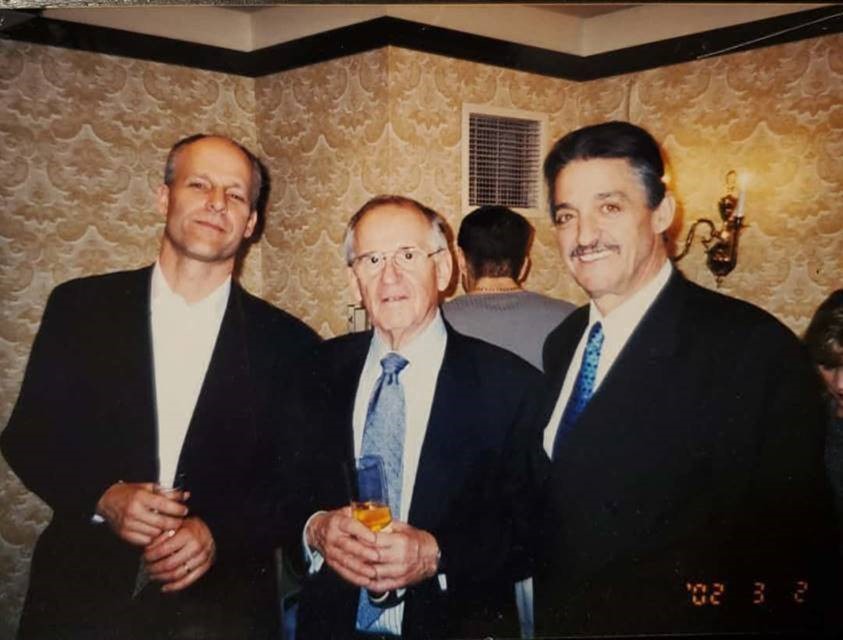Updated November 13, 2020.
“Organizing is not a sales pitch but a rational discussion. Whether someone is for the union or against it, you’re asking 'Do you want a better voice in decisions that affect you?’”
Throughout his thirty-year career with the United Steelworkers and with UNITE HERE Canada, Brad James (MIR 1987) has been an important part of the union efforts to build increasingly diversified membership. He lead the successful diversification of membership beyond the USW’s roots in mining, steelmaking and manufacturing to build new membership groups in the service sector, such as telecommunications, and in ‘white collar’ workplaces—including the University of Toronto, the University of Guelph and Queen's University. Significantly, this diversification also included lower wage sectors, with growth in membership among security guards across Canada.
It is in recognition of his extensive and ongoing contributions to Canadian labour relations that Brad James is the 2020 winner of the Sefton-Williams Award. The award honours those who have made a significant contribution to the field of labour relations and human rights. Brad was recognized at the annual Sefton-Williams Memorial Lecture, hosted online on September 30th, 2020.
It can be tough, Brad notes, coming to the union from “outside”—for example, from academia—rather than from the rank and file. But Brad finished his Bachelor of Commerce at Queen’s University already knowing that he wanted to work for the USW. He says the Centre, where he completed his MIR in 1987, gave him the skills to put expertise to work to effectively represent workers’ interests, connecting research and policy with on-the-ground work for the union.
Brad has contributed frequently to the Centre since his time as a student, volunteering his time to speak at career events, teaching labour relations in the undergraduate program, and consulting on projects including the establishment of a new Chair in Collective Bargaining and Worker Representation. He was recognized with the Morley Gunderson Prize in 1999.
Brad was a consultant for a coalition of unions and faculty associations in the lead up to the establishment of a new jointly sponsored, multi-employer pension plan for employees of Queen’s University, the University of Guelph, and the University of Toronto. Currently, he serves as Coordinator of Stakeholder Relations for the Future of Canadian Automotive Labourforce (FOCAL) Initiative, a collaboration of the Canadian Skills Training and Employment Coalition (CSTEC), the Automotive Policy Research Centre (APRC) and Prism Economics and Analysis, funded by the Government of Canada.
Read the full PWR: work&labour news&research story, including a featured trend report on Youth Employment in Canada’s Automotive Manufacturing Industry
Through his teaching of Union-Management Relations and Industrial Relations at Ryerson University as well as ongoing consulting work with labour unions, employee groups and associated organizations, Brad continues to make significant contributions to both the present and the future of labour relations in Canada.
Congratulations, Brad!
In his own words:
Union organizers get a unique chance to work very closely with people as they try to change their working lives for the better. Of course, plenty of people, and especially union folks, say that union organizing is ‘challenging’ and ‘tough’. But that puts too much focus on the union when instead the real focus should be on the employees who have decided to launch a campaign to form a union at their workplace. These are their campaigns and I was very privileged that people let me and my USW colleagues be part of their efforts. I got the chance to learn from people in cities and towns across Canada who were changing things for the better in the places that they worked. I worked in campaigns with mining employees, factory employees, public sector workers, people working in everything from telecommunications to security guard work and, in most cases they knew how to organize their workplaces and needed the union to be there for support, not to ‘lead the charge’. Campaigns that lacked ‘employee ownership’ were more often the failed ones. I am proud of the work that I was part of, with others, as a United Steelworkers rep and organizer. Union organizing has taught me a lot and I am lucky to have had a chance to do it. I'm not yet so ancient that I personally knew the highly regarded Larry Sefton, but I did know Lynn Williams and I very much want to express my appreciation to the Centre for linking my name in any way to his. Lynn was someone whom I admired tremendously, and I keep this picture of him along with me and another of my mentors in the union, Brando Paris, over my desk at home. Lynn was actually the main person who inspired me to seek work with the USW. I had watched him in the media in the early 1980s and his demeanor, his thoughtfulness, and his leadership around bargaining, organizing and labour’s broader social agenda sparked my interest in the United Steelworkers. After learning more about him and about the union’s issues and challenges across North America, I made it a goal to try to link up with the union and seek work with it. And after surprising myself and getting hired, I turned to Lynn many times over the years for advice and inspiration. It is an honour to be in any manner associated with his legacy.



